
 Shot on video, the monster-mash monstrosity known as Franky and His Pals feels like the management team of your local Spirit Halloween store got drunk after closing and improvised a movie. In reality, it’s made by Gerald Cormier, producer of such X-rated fare as Hey! There’s Naked Bodies on My TV!
Shot on video, the monster-mash monstrosity known as Franky and His Pals feels like the management team of your local Spirit Halloween store got drunk after closing and improvised a movie. In reality, it’s made by Gerald Cormier, producer of such X-rated fare as Hey! There’s Naked Bodies on My TV!
Thanks to an avalanche, the bolt-templed Franky, the vampire Drak, the wolfman Wolfie, the mummy Mummy and the hunchback Humper live captive in a cave, until Franky (Eric Weathersbee) eats so many chili beans that he farts the boulders away to clear a passage. This allows the group to escape and go looking for the rumored gold in town. Emerging from the mummy’s tummy to crack wise is a talking rat. Also, Wolfie (Wilson Smith) is gay, assumedly so Cormier and his pals could make light of a feminine man named Clover (Shawn West), who wears a tutu and walks around asking in a whiny pout, “Have you seen my Wolfie?”
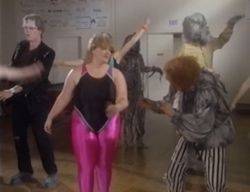 They attend a costume party — conveniently enough, so no one knows their true nature — at a nearby hotel, where they dance, grope women, hop in the sack, judge a bikini contest and participate in one-joke setups that even Rowan and Martin would reject. One running gag has the monsters individually terrified whenever the obese Tammy appears … yet they overwhelmingly vote her the victor in the aforementioned contest — so much for consistency! The night ends when Franky stumbles upon a pot of chili beans in the kitchen, can’t help himself and farts the place into an explosion, which unearths the gold.
They attend a costume party — conveniently enough, so no one knows their true nature — at a nearby hotel, where they dance, grope women, hop in the sack, judge a bikini contest and participate in one-joke setups that even Rowan and Martin would reject. One running gag has the monsters individually terrified whenever the obese Tammy appears … yet they overwhelmingly vote her the victor in the aforementioned contest — so much for consistency! The night ends when Franky stumbles upon a pot of chili beans in the kitchen, can’t help himself and farts the place into an explosion, which unearths the gold.
Oh, you’ll also be treated to a rap song that recounts the events of the prior 10 minutes, a pair of Stepin Fetchit stereotypes as gravediggers, an aerobics sequence, gratuitous Pepsi-Cola placement, and a scientist with a time machine that doesn’t come into play until the very end, when the monsters are zapped away to … well, who knows? The scientist (Cormier himself) breaks the fourth wall to inform viewers the sequel will reveal the quintet’s destination. Luckily, that follow-up never came, because one Franky is twice the amount anyone needs. It’s so corny, you’ll spot chunks of it in tomorrow’s stool. —Rod Lott

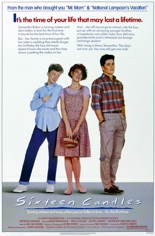
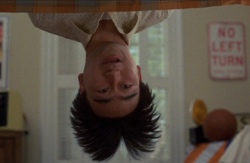
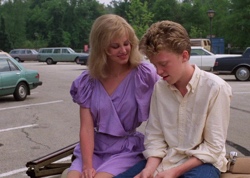
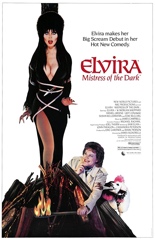
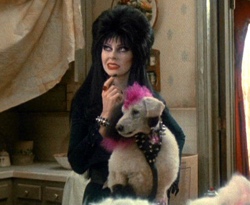


 It’s not like
It’s not like  Yes, God, Yes holds some precedent with 2004’s
Yes, God, Yes holds some precedent with 2004’s